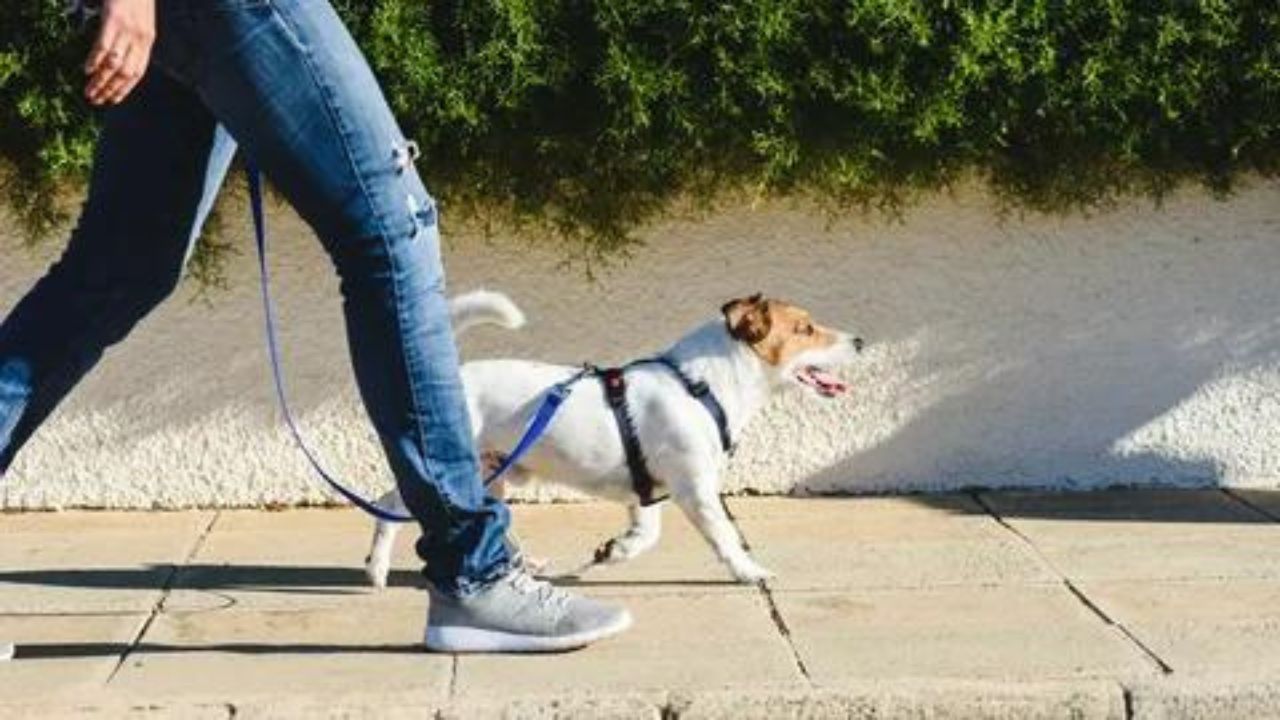Pomeranians are adorable little dogs known for their fluffy coats and lively personalities. If you consider welcoming one into your family, you may wonder about their trainability. Are Pomeranians hard to train? Pomeranians are generally considered relatively easy to train. With the right approach, patience, and consistency, you can successfully train your Pomeranian to be a well-behaved and obedient companion.
Intelligence and Willingness to Learn
One of the key factors contributing to Pomeranians’ trainability is their intelligence. These dogs are known for being smart and quick learners. They have a natural curiosity and eagerness to please their owners, making training sessions enjoyable for both the dog and the owner. Pomeranians are highly receptive to positive reinforcement techniques, such as treats, praise, and playtime, which makes the training process more effective.
Socialization and Early Training
Like all dogs, proper socialization and early training are essential for Pomeranians. Exposing them to various people, animals, and environments during their early months helps them develop into well-adjusted adult dogs. Early training should focus on basic obedience commands, such as sitting, staying, coming, and walking on a leash. Consistency is key during this stage, setting the foundation for future training.
Positive Reinforcement Training
Positive reinforcement training is highly recommended for Pomeranians. This training method involves rewarding desired behaviors while ignoring or redirecting undesired behaviors. Using treats, praise, and rewards motivates the Pomeranian to repeat the desired behavior. Negative reinforcement or punishment-based training methods should be avoided, as they can lead to fear or anxiety in these sensitive dogs.
Housetraining Challenges
One area that some Pomeranian owners may find challenging is housetraining. Like all young dogs, Pomeranian puppies require consistent and patient training to learn where and when to eliminate. It is normal for it to take several months for a Pomeranian puppy to be fully housetrained. Establishing a routine, providing frequent opportunities for bathroom breaks, and using positive reinforcement techniques help speed up the process.
Consistency and Patience
Consistency and patience are vital when training a Pomeranian. These little dogs thrive on routine and clear expectations. Training sessions should be kept short and frequent to maintain their attention span. Remembering that each dog is unique, some Pomeranians may require more time and repetition to master certain commands. Remaining patient and adapting the training approach to suit your Pomeranian’s needs is key.
Puppy Classes and Professional Training

For those who prefer additional guidance or have specific training goals, enrolling your Pomeranian in puppy classes or seeking professional training services can be beneficial. Are Pomeranians Hard to Train? Puppy classes provide an opportunity for socialization, learning basic obedience skills, and interacting with other puppies. Professional trainers can assist with advanced training, behavior modification, and addressing specific training challenges.
Bonding Through Training
Training sessions also offer an excellent opportunity to strengthen the bond between you and your Pomeranian. These sessions allow for quality one-on-one time, building trust, and deepening the connection. The positive reinforcement used during training helps create a positive association with you as the trainer and enhances your Pomeranian’s desire to please you.
Exercise and Mental Stimulation
In addition to obedience training, Pomeranians require regular exercise and mental stimulation. These energetic dogs benefit from daily walks, playtime, and interactive toys. Providing enough physical and mental stimulation helps prevent behavioral issues arising from boredom or excess energy. Incorporating training exercises into these activities can further enhance their overall training experience.
Are Pomeranians Easy to Train
Pomeranians, renowned for their lively personalities and fluffy exteriors, present a mixed bag for training. These pint-sized pups are intelligent, showcasing an ability to grasp commands and learn tricks swiftly. Their innate curiosity and alertness contribute to their trainability, making them generally responsive to positive reinforcement techniques like treats, praise, and rewards.
However, training a Pomeranian may come with its challenges. Despite their intelligence, these dogs possess an independent streak that can border on stubbornness. This self-reliant nature may require a patient and consistent training approach, emphasizing short, regular sessions to maintain their interest and focus.
Early socialization is paramount for Pomeranians, helping curb potential behavioral issues and ensuring they grow into well-mannered companions. House training, in particular, may demand extra patience due to their small size. While some Pomeranians may easily adapt to commands and routines, individual differences play a significant role.
Leash Training

Pomeranians are naturally curious and may be prone to pulling on the leash during walks. Leash training ensures they walk calmly and safely by your side. Start by introducing the leash gradually and reward your Pomeranian for walking politely. Using positive reinforcement techniques, encourage your dog to maintain a loose leash and redirect their attention when distractions arise. are Pomeranians hard to train in leash training?
Leash training is an essential skill for dogs to learn, ensuring safe and enjoyable walks. By gradually introducing a collar or harness and leash and using positive reinforcement techniques, you can teach your dog to walk calmly beside you without pulling or straining. Patience, consistency, and rewarding desired behaviors are key to successful leash training, creating a strong bond between you and your furry companion.
Barking and Vocalization
Pomeranians are known for their vocal nature and can be prone to excessive barking. Proper training is essential to teach them when it’s appropriate to bark and when to be quiet. Positive reinforcement methods can reward calm behavior and redirect their attention away from triggers that cause excessive barking. Consistency and patience are key when addressing this behavior.
Dogs ‘ barking and vocalization are natural behaviors, but addressing excessive barking is important. You can teach your dog appropriate times to bark and how to be quiet on command through training. Using positive reinforcement techniques and redirecting their focus, you can help your dog develop better control over their vocalizations and promote a peaceful and harmonious environment.
Separation Anxiety
Some Pomeranians may experience separation anxiety, which can manifest in destructive behavior or excessive barking when left alone. Training your Pomeranian to be comfortable with periods of separation is important. Gradual desensitization, using crate training, and providing engaging toys can help alleviate separation anxiety. Seek advice from a professional trainer if your Pomeranian continues to struggle with this issue.
Advanced Training and Tricks
Once your Pomeranian has mastered basic obedience commands, you can move on to more advanced training and fun tricks. Pomeranians excel in agility and trick training due to their intelligence and agility. Teach them tricks like spinning, rolling over, or jumping through hoops. Advanced training challenges your Pomeranian mentally and strengthens the bond between you and your furry friend.
Advanced training and tricks take your dog’s skills to the next level. Building upon basic obedience can teach your pup impressive feats like agility, complex commands, and entertaining tricks. These challenges stimulate their intelligence, enhance coordination, and deepen the bond between you and your four-legged companion, creating a rewarding and engaging training experience.
Consistency in Training
Consistency is key when training a Pomeranian. Set clear expectations and enforce them consistently to avoid confusion. Use the same commands, hand signals, and rewards during training sessions. Consistency extends beyond training sessions; reinforce good behavior consistently throughout the day to maintain the desired training outcomes. are Pomeranians hard to train in consistency training?
Consistency in training is crucial for achieving effective results. Consistent reinforcement of commands and clear expectations help establish a strong foundation of obedience. It ensures that your dog understands and responds to your cues reliably, leading to better behavior and a stronger bond between you and your furry friend.
Continuing Education
Training is an ongoing process throughout your Pomeranian’s life—dogs, including Pomeranians, benefit from continued education and reinforcement of their training skills. Regularly revisit previously learned commands to ensure they stay fresh in your dog’s mind. Additionally, stay up-to-date on new training techniques and developments in dog behavior to enhance your training experience.
Conclusion
Despite their small size, Pomeranians are intelligent and trainable dogs. With patience, consistency, and positive reinforcement, you can successfully train your Pomeranian to be a well-behaved and obedient companion. Start training early, focus on socialization, and establish a routine. Celebrate your Pomeranian’s successes and adjust the training approach to their needs. Training is not only a means of teaching commands and skills; it’s also an opportunity to strengthen the bond between you and your beloved Pomeranian.
FAQ
Why are Pomeranians hard to train?
The Pomeranian is a little toy breed that can be challenging to understand. First, because accidents are usually minor, owners aren’t always able to detect them immediately. The dog is unaware they did anything incorrect because they could not see this and correct the Pom.
Can I leave a Pomeranian alone?
How Much Time Is Allowed in a Pomeranian’s Home Alone? A dog of any age, eight weeks and older, may spend eight to nine hours alone at home, provided he has the proper setup for comfort, safety, and meeting all his requirements. It is especially true if you work, attend school, or have other obligations that need you to be away from home.
At what age should I start training my Pomeranian?
Early training is essential. Start basic obedience training as early as 8 to 10 weeks old to establish good behavior habits.
What are common challenges in training Pomeranians?
Pomeranians may exhibit stubbornness and a short attention span. Consistency, positive reinforcement, and short, engaging training sessions are key to overcoming these challenges.
How do I address Pomeranian barking issues during training?
Pomeranians are known to be vocal. Teach a “quiet” command and reward silence. Consistency is crucial, and avoid reinforcing barking by giving attention when they’re noisy.

